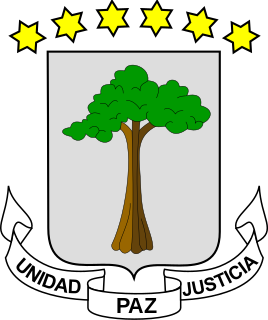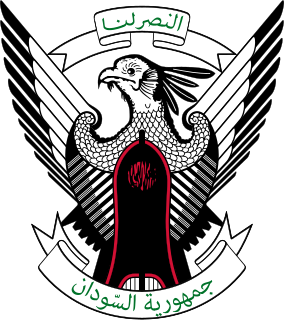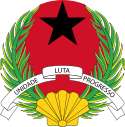
Elections in Guinea-Bissau take place within the framework of a multi-party democracy and a semi-presidential system. Both the President and the National People's Assembly are directly elected by voters.

The National Assembly of People's Power is the legislative parliament of the Republic of Cuba and the supreme body of State power. Its members are elected from multi-member electoral districts for a term of five years. The Assembly's current President is Esteban Lazo Hernández. The assembly meets twice a year. Between sessions it is represented by the 31 members Council of State. The most recent elections were held on 11 March 2018.

The unicameral National Assembly is the legislative body of the Republic of Cape Verde.

The Chamber of Deputies is the lower house of the Parliament of Equatorial Guinea.

The unicameral National People's Assembly is Guinea-Bissau's legislative body.

The Chamber of Deputies is the lower house of Haiti's bicameral legislature, the National Assembly. The upper house of the National Assembly is the Senate of Haiti. The Chamber has 119 members who are elected by popular vote to four-year terms. There are no term limits for Deputies; they may be re-elected indefinitely.

The Council of States is the upper house of the parliament of Sudan. Comprehensive Peace Agreement (CPA) caused establishment of bicameral National Legislature, whose members were chosen in mid-2005. The upper chamber is Council of States, which had 54 members. After the independence of South Sudan, the legislature was reduced to 32 members. The members are indirectly elected by state legislatures. Members serve five-year terms. The National Legislature, which includes the Council of States, was dissolved on 11 April 2019 following the overthrow of President Omar al-Bashir and his National Congress of Sudan in a military coup.
Francisco Benante is a Bissau-Guinean politician. He was President of the African Party for the Independence of Guinea and Cape Verde (PAIGC) from 1999 to 2002 and President of the National People's Assembly of Guinea-Bissau from 2004 to 2008.

General elections were held in Guinea-Bissau on 3 July 1994, with a second round for the presidential election on 7 August. They were the first multi-party elections since independence, and also the first time the president had been directly elected, as previously the post had been elected by the National People's Assembly. In the presidential election, the result was a victory for incumbent João Bernardo Vieira of the African Party for the Independence of Guinea and Cape Verde (PAIGC), who defeated Kumba Ialá of Social Renewal Party in the second round. In the Assembly election, 1,136 candidates ran for the 100 seats, of which the PAIGC won 62.

General elections were held in Guinea-Bissau on 28 November 1999, with a second round for the presidential election on 16 January 2000. The presidential election resulted in a victory for opposition leader Kumba Ialá of the Party for Social Renewal (PRS), who defeated Malam Bacai Sanhá of the ruling African Party for the Independence of Guinea and Cape Verde. The PRS were also victorious in the National People's Assembly election, winning 38 of the 102 seats.

Indirect parliamentary elections were held in Guinea-Bissau on 15 June 1989. At the time, the country was a one-party state with the African Party for the Independence of Guinea and Cape Verde as the sole legal party. Voter turnout was 53.2%, and around 60% of the Assembly members were elected for the first time. The Assembly re-elected João Bernardo Vieira to the post of President on 19 June.

The Democratic Party of Progress is a political party in Guinea-Bissau.
This page is based on this
Wikipedia article Text is available under the
CC BY-SA 4.0 license; additional terms may apply.
Images, videos and audio are available under their respective licenses.







